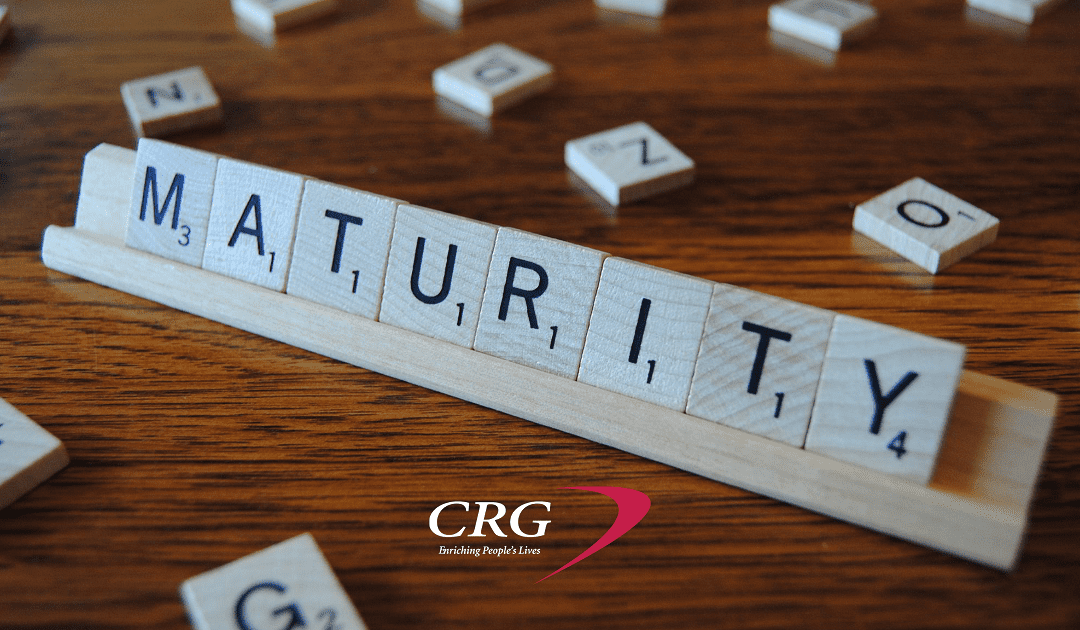Maturity–Don’t Leave Home Without it!
What is maturity–really?
To define maturity, it’s helpful to describe the opposite or immaturity.
The immature person
- is too quick to act;
- is too slow to act;
- is inappropriate in his or her reactions;
- is unwise in his or her choices;
- acts confused:
- lacks confidence in him or herself;
- is arrogant;
- has intentions that don’t match actions or outcomes;
- plays to peer pressure, instead of what’s right.
Just over 30 years ago, I began my professional speaking and consulting career. As a new member of the National Speakers Association in 1988, I was excited to hear the new strategies to grow my emerging business.
What I did not like to hear were suggestions from some individuals that a speaker only started to come into his or her own in their 40s. I rejected such limiting thoughts and ideas.
Anthony Robbins made it in his late 20s and early 30s. Certainly, I could, too. I did not need to be 40 to make an impact. After all, I had met many 40-year-olds who were no more mature at 40 than they had been when they were 20. (Some people will go through their entire life, never maturing beyond their younger years.)
Now that I am 60, I must admit that, for the most part, those speakers were correct. I see that my immaturity was negatively responding to those early comments.
What were the speakers really saying? Life experience, over time, is required for maturity to ground itself in our lives. There simply is no replacement.
Is maturity a redeeming quality?
The answer is a resounding YES!
Think about it. I am going to send you on a business trip to meet with a potential client who is very high profile. You can choose a colleague to take with you: a seasoned, articulate, mature individual or a high-energy, exuberant, off-the-wall immature team member.
Which team member do you prefer to take?
Most would select the mature person, not because of age but because of confidence, predictability, and wisdom. The fact is that the immature team member is a risk to the business relationship and to the sale. Because the latter lacks maturity, he is unaware of the unfavorable impact his behavior has on important relationships.
What about you?
Would others consider you mature or immature in your conduct?
Maturity is an attractive quality.
Immaturity is not.
- The mature person recognizes that the more they learn, the more they know they don’t really know a lot. This is where confidence and humility combine.
- The mature person makes decisions and stands by them. They are not swayed by public opinion and peer pressure.
- The mature person is not intimidated by conflict or unpleasant situations. He understands that that is part of life.
- The mature person does what they say they will do.
- The mature person is patient. They will forfeit immediate pleasure for long-term gain.
Maturity does not mean you live life without fun.
It means you are aware of which actions will be perceived as appropriate—while you live your life on purpose.
Action Steps
Maturity–Don’t Leave Home Without it!
- What would others say about you: are you mature or immature?
- Are you happy with your level of maturity in this stage of your life? Yes or No?
- If your maturity level is lower than it could be, what has this cost you in lost credibility and effectiveness with others?
- What type of people are your friends and colleagues? Do they model the maturity and character that is reflective of what you would like to become?
- What three things could you do to increase your maturity level and thinking?
- Mature individuals know who they are and where they are going. Their high self-awareness reveals their strong levels of self-confidence. How conscious are you in these areas?
- Being mature does not mean you give up fun and spontaneity. In fact, quite the opposite is true.
- To assist in your journey of increasing your level of maturity, I am recommending the following CRG resources.
- Know where you are going by considering our book or new ecourse The Quest For Purpose which provides you a roadmap and processes to confirm what is most important to you in all areas of your life.
- To identify your natural preferences and strengths, complete the https://crgleader.com/personal-style-indicator/ Personal Style Indicator.
- To clarify your core values, complete the Values Preference Indicator.
- To understand how your level of self-worth is affecting your success, complete the Self-Worth Inventory.
- Finally, to determine how your lifestyle is influencing your stress and wellness levels, complete the Stress Indicator and Health Planner.9. Maturity is humble, grounded, centered, and confident—all in the same breath. Decide today that you are part of this astute group.
Until next time, keep Living On Purpose!
Ken Keis
New Wellness eCourse!
Dying To Live: Breakthrough Stress Reduction & Wellness Strategies
A full online learning experience and ecourse based on the Stress Indicator & Health Planner. This is based on our half day live workshop converted to the online format just for you.

